Find experience reports of students focusing on Human-Computer Interaction as part of their studies:
Rebecca Weber

What I like about HCI is that it is a very interdisciplinary field. We always think about the users who can be very diverse in their knowledge and skills. My Bachelor project and thesis were related to the field of neurological rehabilitation and made use of current Virtual Reality technology. This was an interesting combination to work with. Finally, I even had the opportunity to conduct a study with patients in a neurological rehabilitation center, which was really a great experience. Further, about the lectures offered at the HCI chair, I especially like the mixture of theoretical input from on-going research and „hands-on“ projects.
Philipp von Bauer
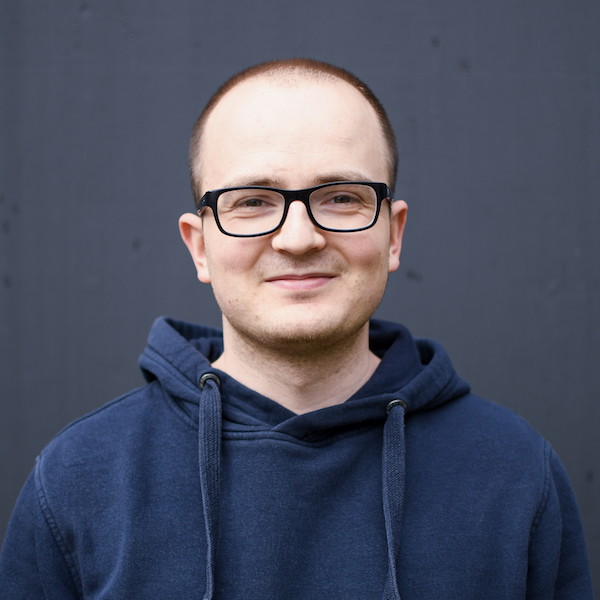
I came to the University of Konstanz with the goal of deepening my knowledge in the field of human-computer interaction. The workgroup not only offers a wide range of content in terms of lectures, but also a team of (post-)doctoral students providing a very good support work — the doors are always open. I especially liked that you have the opportunity to try out many of the latest technologies and thus get in direct contact with the topics that are current in both science and industry. In addition, I was fortunate enough to become part of the working group as Hiwi and was involved in the group's current research projects. While this can be a lot of work, you also learn a lot and the familiar atmosphere that prevails in the workgroup helps. If you as a student have the opportunity to become a part of the HCI group, you should take it.
Marcel Borowski
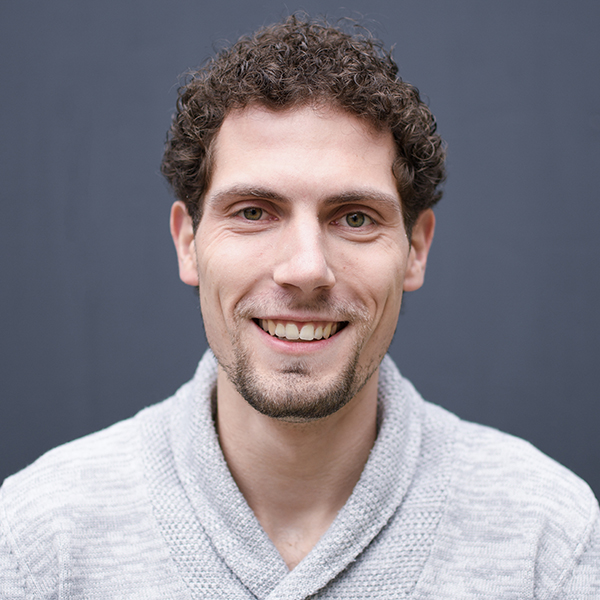
After having focused on computer graphics during my bachelor’s degree, I changed to the workgroup of human-computer interaction during my master’s. In addition to my master-project which I carried out in the workgroup, I also decided to take up work there as a student assistant.
During my time in the HCI workgroup, I was given the opportunity to work on various interesting projects. For one, there were the courses in which we, often as a team, developed exciting prototypes, or even whole exhibitions such as “Rebuild Palmyra?”. Further, being able to assist on research projects like ERTRAG offered me insights into new technologies like AR and VR. Lastly, my master-project led me to Denmark for a three-month internship, where I got to make new contacts and gather valuable experience.
What characterizes the HCI workgroup for me is the collaboration with other disciplines. When applications are created with a focus on the user, the user must first be understood correctly. Learning the essentials of disciplines like psychology or communication design as well as receiving support from fellow students and experts in these fields helps to find creative solutions.
The very good working atmosphere within the workgroup for me topped off my time in the HCI workgroup.
Carla Gröschel
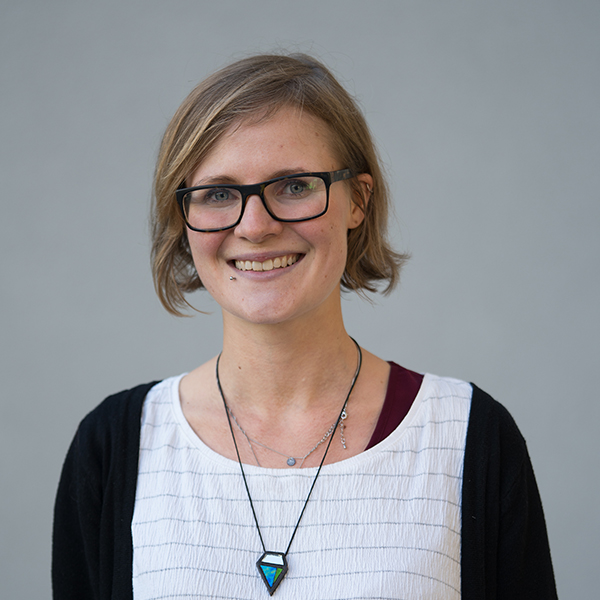
After my Bachelor degree in "cognitive and media science" in Duisburg I applied for several master degrees in cognitive science although I knew already that I would like to study a master degree in HCI. The master in Computer and Information science in Konstanz I found by accident but I can only recommend it to study this master with the specialisation in HCI to everyone who is interested in this topic. The studies is really practical. Using new technologies we often work in groups in our own projects. That was one thing I missed during my bachelor degree. One example was the development of an application for the Microsoft HoloLens or the HTC Vive last year. Since the start of my master degree I also work as student researcher at the department which gives you a great opportunity to work directly in current research projects from different topics. I was also supported in the idea of going abroad as an intern. With the help of the department I got the possibility to spend the last six month at the University of Aarhus.
Lisa-Maria Mayer
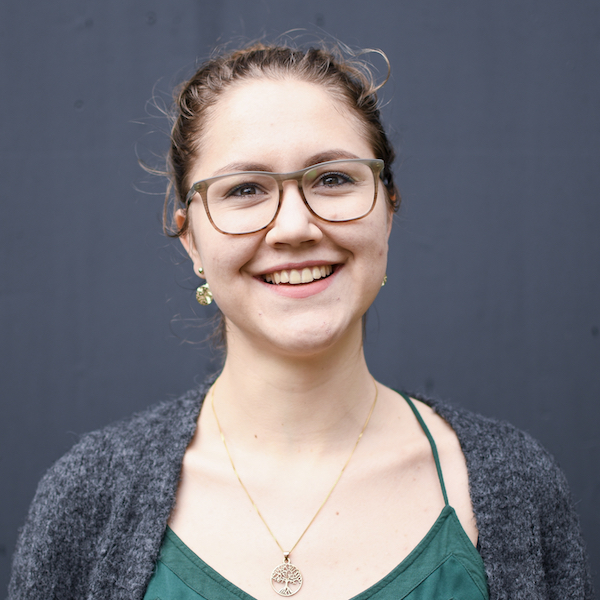
When people asked me why I wanted to study Computer Science, I talked about Science Fiction movies: I was fascinated by how Iron Man interacted with his computer via a 3D user interface or by the fact that all the windows in his house were touch monitors. Back then, I had never heard of HCI or of the term usability. At the beginning of my fourth semester, I read the description of the obligatory course Interactive Systems — and could completely find myself in these words. Nowadays, I have specialized in this area and am starting with my Bachelor Seminar. Additionally, since this semester I am a student assistant for Interactive Systems — the exact lecture that first fascinated me for HCI. What I personally love about HCI is that they look beyond their own nose: I never complied with the stereotype computer scientist who is happy digging into his code, but instead I like to focus the people who in the end will use the system. Often I experience people around me failing to use their computer or phone because they can’t understand the way it works. My claim for electronic devices is that also inexperienced users can use them without problems — and exactly this is the kind of systems that I want to contribute to by understanding the technical part as well as the people sitting in front of the screen and using it.
Moritz Skowronski

In the fourth semester of my Bachelor's degree in Information Engineering, I lost interest in it: I wanted to study something else and just get my degree. I decided to write my thesis at the human-computer interaction group, where the combination of different disciplines such as design, psychology and computer science still appealed to me the most.
This decision was the right one. Attending the advanced courses of the working group I realized that HCI is a field in which I want to work in the future as well. In particular, I want to highlight the series of courses "Blended Museum": Here I worked together with students of architecture and communication design at the HTWG Konstanz and students of history at the University of Konstanz on the design and implementation of innovative exhibition concepts. Working with students from different disciplines has been and is extremely inspiring for me and the results which can be achieved by bringing the different skill sets together are impressive: For the exhibition "Rebuild Palmyra", for example, I programmed an interactive table using various sensors; architects and communication designers designed the carcass of the table and produced the animations and graphics that were displayed on it, while a historian was responsible for its content. Being able to finally present your result to the visitors of the exhibition is an indescribable experience.
Thanks to HCI, I regained interest in my studies: I am now in my third Master's semester in Computer and Information Science and have been a research assistant in the HCI group for more than two years. Designing exhibitions is still a matter which is close to my heart.
Jonathan Wieland
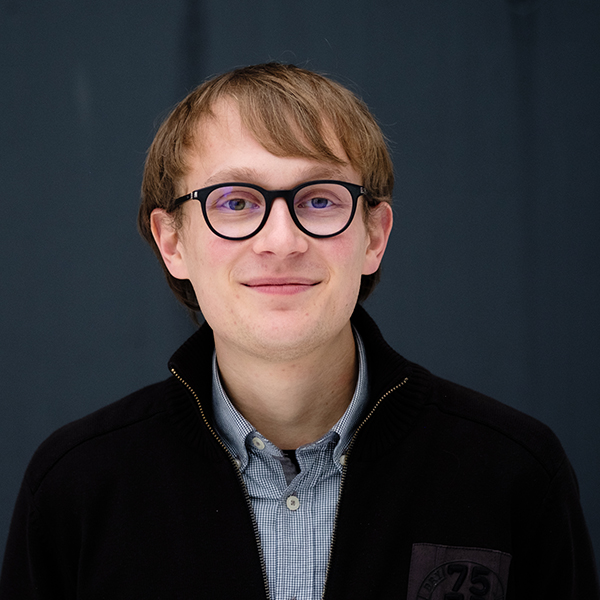
After I started to study computer science in the winter term of 2011, I wasn’t sure at all if this was the right thing for me. But then I found myself confirmed through the various courses offered by the Human-Computer Interaction Group. Quickly, they aroused my interest and motivated me for the topic. Often, the theoretical contents of the lecture are deepened by practical group work. Access to the latest technologies and excellent support make it possible to develop exciting prototypes that address current issues in research and industry. As part of the lecture “Blended Interaction,” for example, we developed an AR navigation app for academic libraries. Also, the interdisciplinary lecture “Blended Museum” was very exciting. Together with students from the fields of architecture, history and communication design, I was able to participate in the conception and realization of the exhibition “Rebuild Palmyra?”. Although these projects were very time-consuming, I probably learned the most with them.
During Bachelor Project and Bachelor Thesis, I also received excellent support and was introduced into the field of scientific work. Together with my supervisor I even was able to publish parts of my bachelor thesis as a paper and present it at a conference.
Meanwhile, I also do my Masters with a focus on HCI. Besides, I am working as a student researcher for the HCI group. In addition to the exciting research projects, I especially appreciate the friendly atmosphere and the helpfulness among colleagues.
Daniel Fink

During my bachelor studies I attended courses in the field of human-computer interaction. What fascinated me immediately when I attended these courses was that prototypes are being developed that give an idea of what tomorrow's user experience might look like. The participants of the courses were always provided with the latest technologies and the mentoring and organization by the course tutors was really excellent. As a result of my interest in HCI, I finally decided to write my bachelor thesis in this field. In the context of my bachelor project I was allowed to develop a digital table tennis table, which should motivate people to do more sport. Since the group was looking for a developer for a study prototype at this time and I already liked the work in the courses, I finally became a student researcher in the Human-Computer Interaction group. Working in this group is a lot of fun and I’m learning a lot of things every day. Among other things, the cooperation with other departments in interdisciplinary projects is very enriching. The very good working atmosphere and the flat hierarchies within the group make the work very pleasant. I can recommend the Human-Computer Interaction Group to anyone interested in HCI topics.
Sebastian Hubenschmid

I've been working as student researcher since my second semester, which allowed me to gain insight into the HCI department and enabled me to work on challenging and interesting projects. Due to the considerable intersection with other fields, such as visual data analysis, HCI can offer a large variety of topics from which you can pick a fitting project: everything is possible ranging from design-oriented topics to deeply technical, augmented reality applications. This offers many opportunities even for technically-minded people to fully utilise their abilities for programming and dealing with hardware- and software-architecture. Studying in the HCI department also thoroughly prepares you for your career later on; especially the application-orientied lectures provide hardworking students with an opportunity to intensively work on a variety of impressive projects.
